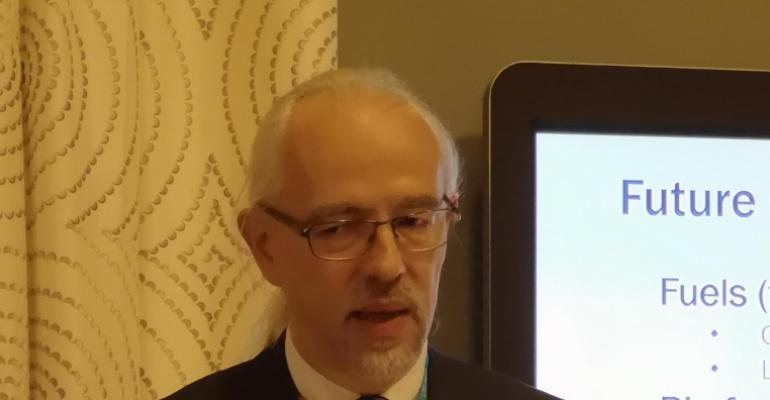His comments came as the engine maker lent its support to LNG as the right way forward on marine fuel development whilst still fully supporting the aim of having carbon-neutral fuels available by 2030.
Weisser revealed that a ship operator in the Baltic is already successfully using 20% drop-in biogas on a vessel running on LNG and the proportion is only constrained by price and availability. The drop-in process is already widely used in fuels used ashore; existing ships could burn the fuel with minimal modifications; and the existing supply chain would require little additional investment.
Weisser was keen to stress that future marine fuels must be assessed over their complete well-to-wake supply chain. Most of the hydrogen produced today, for example, generates more than eight times its volume in terms of carbon dioxide. Meanwhile, ammonia may be an effective hydrogen carrier, but its combustion process would still need to include the sustainable management of nitrogen emissions and it is highly toxic.
Rolf Stiefel, vice president Sales and Marketing, said that engine makers can produce low-speed two-stroke engines running efficiently on any fuel that can be converted into propulsive power. But there are no easy options in shipping’s decarbonisation process and the marine fuels of tomorrow are likely to cover a wide range.
For this reason, a cross-industry, collaborative effort is required and the absence of a carbon atom in a potential fuel of the future may not be the ultimate objective if net-zero carbon fuels actually prove to be more sustainable.

